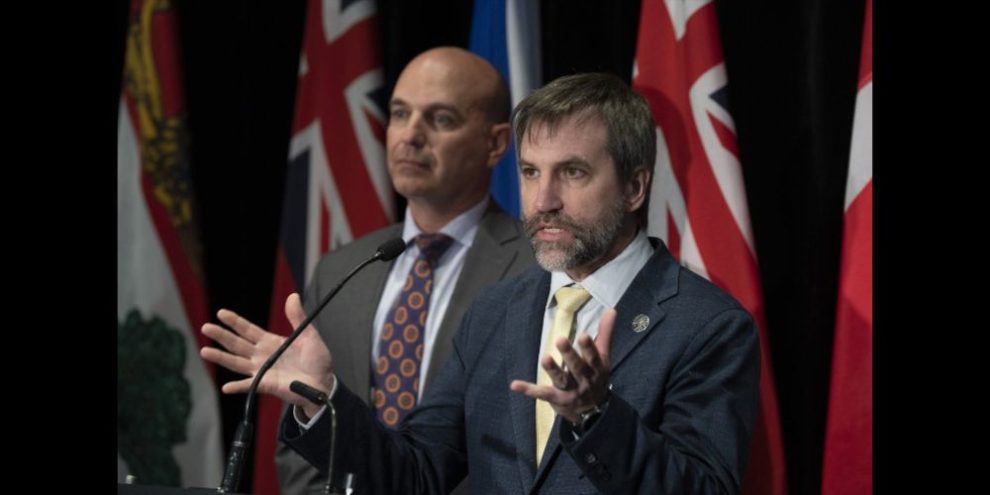
By Mickey Djuric in Ottawa
Canada's provinces and territories are on board to help the federal government in its goal to halt land and water loss across the country.
Federal Environment Minister Steven Guilbeault met with his counterparts in Ottawa today and said they're all on the same page about conservation targets.
The Liberal government is leading a biodiversity strategy to protect 30 per cent of Canadian land and water by 2030. Prime Minister Justin Trudeau announced the target in 2020 and Canada was among the countries which pushed successfully for more than 190 other countries to follow suit at a UN biodiversity conference in Montreal last December.
"It's a necessary plan. Nature is what nurtures all life. It provides us with food, clear air and water, as well as protection from nature's hazards," Guilbeault said on Friday.
Provincial, territorial leaders have agreed to collaborate with Ottawa and Indigenous Peoples moving forward because "there's no action on the environment in Canada without the full engagement of Indigenous leaders," said Guilbeault.
He said the provinces and territories have a critical role to play in reaching the target because of their significant authority over land use — but some provinces will be able to conserve more land than others.
The global deal specifies that countries will collectively preserve 30 per cent of land and oceans, but some countries have either little land or little ocean that they can contribute to that total, Guilbeault said.
The same holds true for some provinces.
For example, Nova Scotia's land is 70 per cent private, so the province committed to preserving 20 per cent of its land, said Nova Scotia environment minister Tim Halman. British Columbia committed to preserving 30 per cent.
"We know that others will do more, and that's how collectively we will get to protecting at least 30 per cent of our lands and ocean by 2030," Guilbeault said, acknowledging there could be some bumps along the way.
More than half of the provinces' ministers had skipped out the meeting with the feds and Indigenous leaders during their first face-to-face meeting on the topic since the UN conference in December.
Environment ministers from Saskatchewan, B.C., Prince Edward Island, Nova Scotia and Northwest Territories attended the meeting.
The other provinces and territories sent their deputy ministers, while Alberta skipped it altogether due to its upcoming provincial election.
However, Guilbeault said he's confident he will have Alberta's co-operation since their environment minister attended COP15 when the deal was struck in December.
"I have been talking with my Alberta counterparts before the election on some of these issues … of nature protection and biodiversity protection, and I'm confident that regardless of the result of the election we'll have that collaboration," Guilbeault said.
Halman said there's a lot of momentum between Ottawa and the provinces on this issue, and he's pleased to see everyone working together.
"Canada is a community of communities and you’re seeing provinces and territories in their own way moving to conserve land and water and to protect biodiversity," Halman said Friday.
At the end of 2022, almost 14 per cent of Canada's land and freshwater and almost 15 per cent of marine areas and coastline were under some kind of conservation protection.
This report by The Canadian Press was first published May 26, 2023.
Banner image via The Canadian Press





